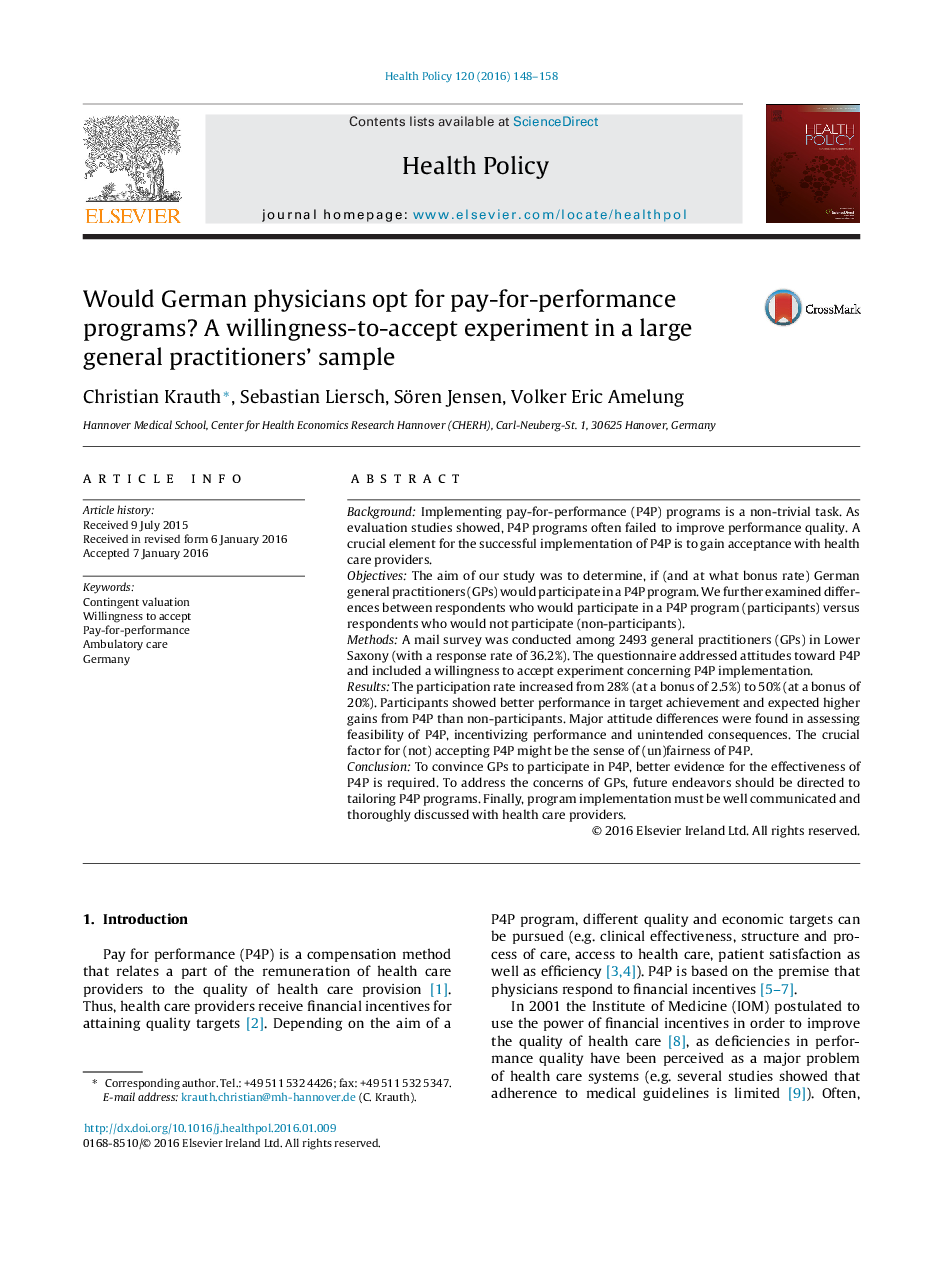| کد مقاله | کد نشریه | سال انتشار | مقاله انگلیسی | نسخه تمام متن |
|---|---|---|---|---|
| 4197760 | 1278980 | 2016 | 11 صفحه PDF | دانلود رایگان |
• Survey in a large sample of general practitioners with a reasonable response rate.
• Findings from our WTA-experiment are consistent with economic theory.
• Participation rate in the WTA-experiment was increasing with increasing bonus amount.
• Nearly half of the respondents (46%) would not opt for P4P.
• German GPs seem to be divided in their attitudes toward P4P.
BackgroundImplementing pay-for-performance (P4P) programs is a non-trivial task. As evaluation studies showed, P4P programs often failed to improve performance quality. A crucial element for the successful implementation of P4P is to gain acceptance with health care providers.ObjectivesThe aim of our study was to determine, if (and at what bonus rate) German general practitioners (GPs) would participate in a P4P program. We further examined differences between respondents who would participate in a P4P program (participants) versus respondents who would not participate (non-participants).MethodsA mail survey was conducted among 2493 general practitioners (GPs) in Lower Saxony (with a response rate of 36.2%). The questionnaire addressed attitudes toward P4P and included a willingness to accept experiment concerning P4P implementation.ResultsThe participation rate increased from 28% (at a bonus of 2.5%) to 50% (at a bonus of 20%). Participants showed better performance in target achievement and expected higher gains from P4P than non-participants. Major attitude differences were found in assessing feasibility of P4P, incentivizing performance and unintended consequences. The crucial factor for (not) accepting P4P might be the sense of (un)fairness of P4P.ConclusionTo convince GPs to participate in P4P, better evidence for the effectiveness of P4P is required. To address the concerns of GPs, future endeavors should be directed to tailoring P4P programs. Finally, program implementation must be well communicated and thoroughly discussed with health care providers.
Journal: Health Policy - Volume 120, Issue 2, February 2016, Pages 148–158
